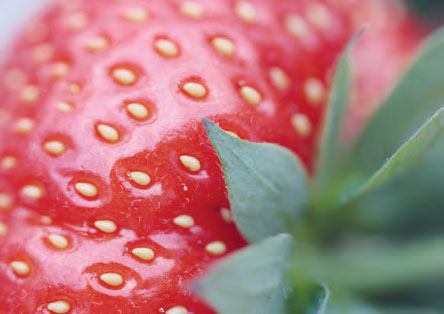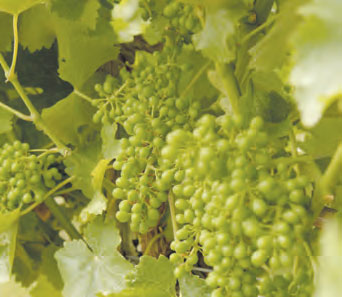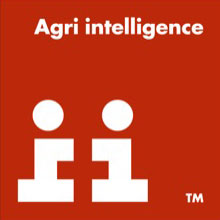
Technical Manager
Non-Combinable Crops
Biological crop protection agents have been heralded as the future of pest and disease control for more than a decade, but for many early adopters the experience left them underwhelmed.

Fortunately, the strong performance of several products, such as Serenade ASO (Bacillus subtilis strain QST 713), Sonata (Bacillus pumilus strain QST 2808) and, more recently, Botector (Aureobasidium pullulans strains DSM 14940 and DSM 14941) served to demonstrate that some have real potential.
In many cases, growers are right to be sceptical, Don Pendergrast, Agrii technical manager for non-combinable crops says, but there is also cause to be optimistic.
“In many cases the introduction of a biological product brings a new mode of action or other benefits such as reduced harvest interval or exemption from residue limits, while in rare cases, such as with Botector, the performance is better than that of the conventional fungicide standard,” Mr Pendergrast explains.
“In other situations, such as powdery mildew in strawberries, there are simply not enough active substances or modes of action to deliver a robust programme, so we need to be savvy in how we approach protection and utilise all available options,” he adds.
Proven performance

Of the many biological products – pheromones, micro-organisms and natural substances – available to growers in Great Britain, only a handful have shown sufficient performance to earn the respect of growers.
Botector offers strong performance against Botrytis and has demonstrated better control than many conventional products in Agrii trials over a number of seasons in both vines and soft fruit.
“Botector can also be used for reduction of Monilinia spp. in stone fruit. Botector use has increased in grape and soft fruit production in recent seasons as confidence in its performance has spread,” Mr Pendergrast says.
Blossom Protect contains the same active substance as Botector but is a different formulation that can be used for the control of fire blight in pome fruit.
“Fire blight is a difficult disease to control and Blossom Protect has become widely used in Europe for this threat. It is now used by growers across the UK for fire blight,” Mr Pendergrast says.
Mevalone (geraniol + eugenol + thymol) is a foliar-applied biofungicide for the control of Botrytis cincera in wine grapes. It is yet to gain registration for use in Great Britain or Northern Ireland but is an example of the potential offered by terpene-based products.
“Mevalone has a novel mode of delivery using a biological yeast encapsulation to extend the efficacy of the three terpenes it contains. It is particularly exciting because it offers control, or partial control, of three difficult-to-control diseases: Botrytis, powdery mildew and downy mildew.
“We have seen terpene-based products perform well against powdery mildew versus other biofungicides, so Mevalone and other terpene-based products may offer some potential should we lose mancozeb,” Mr Pendergrast advises.
ProAct has become a staple biostimulant in many programmes. It is a complex peptide that delivers quality and physiological improvements that support shelf-life through its bio stimulatory effect on calcium utilisation.
“In cherries, depending on variety, it has been found to reduce splitting. In apples, it has reduced bitter pit, improved colouring, set and size and in strawberries it has improved vegetive development, fruit size and shelf-life,” explains Mr Pendergrast.
Frutogard is a phosphite with fungicidal properties. It has shown strong activity against Oomycete pathogens, such as downy mildew, in grapevines. Frutogard has become a valued product in the grapevine programme.
Sonata (Bacillus pumilus strain QST 2808) has been an effective means of control in protected cropping situations as part of a programme for the control of powdery mildew.
Amylo X (Bacillus amyloliquefaciens D747) is the next generation of fungicide to contain Bacillus species.
“It has performed consistently well in trials over several seasons delivering good control of Botrytis and other storage diseases such as penicillium in strawberry. It has also proved effective against storage rots and as part of a programme for control of powdery mildew,” Mr Pendergrast says.
Secover is a silicon product registered as a physical insecticide.
“It has performed well versus other biological products. While not as good as a conventional insecticide it can be used effectively in programmes against pests such as rosy apple aphid in orchards as well as aphid in soft fruit. Similarly Flipper, a plant oil containing fatty acids, has a physical mode of action but is registered as a bioinsecticide,” adds Mr Pendergrast.
Innocul8 is a biostimulant peptide + Mn + Zn, typically applied early in programmes to improve plant health and reduce abiotic stresses in top fruit. Used alongside fungicides, it can reduce the overall disease seen on the plant and can also help with softening some of the harsher products.
Laminarin is a plant elicitor product that is yet to receive authorisation from CRD as a biofungicide for use on top fruit and soft fruit.
“In Agrii trials during 2022 it delivered control against apple scab that was comparable to captan,” Mr Pendergrast says.
Dipel and Delphin are both based on different strains of Bacillus thuringiensis (BT). Both products have been used for reducing populations of lepidoptera larvae and have a good IPM profile due to their selectivity.
“Interest in their use is increasing as well as interest in granulovirus products such as Madex Top and Carpovirusine which are both specific to control of codling moth (Cydia pomonella). The BT products do, however, offer wider control across many of the lepidoptera species that are of significance in fruit, such as Winter moth (Operophtera brumata),” says Mr Pendergrast.
Look out for us at:
British Christmas Tree Grower Award (BCTGA) Competition Day
Date: Thursday 19th October 23
Location: Billingley Christmas Tree Farm, Barnsley, South Yorkshire
National Fruit Show 2023
Dates: Wednesday 1st & Thursday 2nd November 23
Location: Kent Showground, Detling, Kent
Vineyard & Winery Show 2023
Date: Wednesday 22nd November 23
Location: Kent Showground, Detling, Kent


